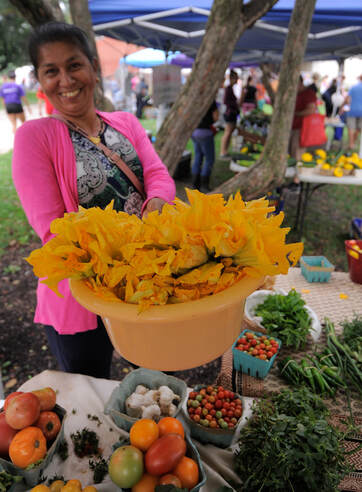Our Roots
 Photo courtesy of Paul Bick, Field Museum
Photo courtesy of Paul Bick, Field Museum
In 2012, 42 refugee families-- many with three generations working together-- turned a vacant lot into a productive garden and began growing fresh, organic vegetables for home consumption and sale. Today, our one acre farm in Chicago's Albany Park neighborhood has 3 ft. x 30 ft. plots for refugee families who want to grow for home consumption, and six plots between 2,000 and 2,500 sq. ft. for six market farmers, who grow for sale at farmers markets, restaurants, our CSA program, and other wholesale buyers. Our market farmers also donate to various food pantries and are reimbursed for their donations through the support of Conagra Brands Foundation. In 2023, our six market farmers collectively generated over $100,000, with over $26,000 of that amount being donated.
By providing land, tools, seed and training, this project builds on the traditional strengths of refugees from rural backgrounds to create food security and economic opportunity in their new home. Many refugees have fled persecution and war and encounter new struggles when arriving in the United States, from language barriers to difficulty finding employment. Refugees at our farm are able to cultivate a sense of agency, community, and-- for refugees who were formerly farmers-- experience re-connection with the land and nature.
By providing land, tools, seed and training, this project builds on the traditional strengths of refugees from rural backgrounds to create food security and economic opportunity in their new home. Many refugees have fled persecution and war and encounter new struggles when arriving in the United States, from language barriers to difficulty finding employment. Refugees at our farm are able to cultivate a sense of agency, community, and-- for refugees who were formerly farmers-- experience re-connection with the land and nature.